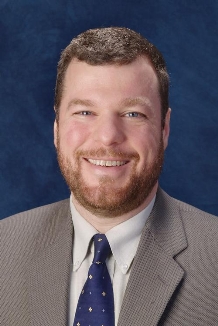We have presented a series of articles discussing the initiation of a civil personal injury lawsuit in Oregon, from start to finish. In our previous article, we explained how a defense attorney may attack the plaintiff’s case with a motion for a partial or a full directed verdict. We also explained how a plaintiff’s attorney can use a directed verdict to establish certain parts of the case as proven. We now examine what could happen when the defense is ready to put on his case in chief.
The defense begins putting on its case in chief after the plaintiff has rested her case. How much evidence an insurance defense attorney may offer depends upon the allegations in the defendant’s answer. For example, a defendant, in his answer, may only deny certain allegations that were set out in the plaintiff’s complaint. "Allegations" are the facts you are alleging in the complaint, or, your side of the story. These are the two documents in the court file that the find the issues in the case. A defendant also may choose to allege affirmative defenses, which required the defendant to prove those defenses.
In many Oregon and Washington personal injury trials, the insurance defense attorney may call expert witnesses to dispute plaintiff’s allegations that the defendant was negligent, and caused the plaintiff injury.
For example, where the defense denies that its client was responsible for causing an auto collision, the insurance defense attorney may call an accident reconstructionist as an expert witness. This expert relies on other evidence in the case, like police reports, photographs, and witness testimony to form an opinion on what events led up to the collision.
In a recent trial, we represented a pedestrian who was struck by a small pickup truck driving eastbound out of the city limits of Astoria. We retained an accident reconstructionist to determine whether or not the driver of the pickup truck had sufficient time to see the pedestrian and avoid the collision. The defense also retained an expert to explore the same issue. Astonishingly, each expert had a different opinion about the events leading up to the collision. This is a common example of a liability expert coming to a trial for either the defense or the plaintiff.
The defense also may deny that the plaintiff suffered certain injuries, or that the plaintiff required all of the treatment he obtained as result of the injury sustained in the auto collision. Here are a few examples.
In a few trials we have represented plaintiffs on, the defense has called a biomechanical engineer to dispute whether or not our client could have even suffered an injury given the facts of the collision. The biomechanical engineer was not a physician, but nonetheless relied upon studies, some of which were conducted by other biomechanical engineer to made significant sums of money working for insurance companies, to argue that our client could not be injured given the facts of the collision.
More commonly, insurance defense attorneys will call physicians, many of which are retired from active practice, to testify as defense medical experts. These physicians routinely examine injured plaintiffs and injured workers, and then testify in court, many times giving an opinion that the plaintiff was not permanently injured, or that the plaintiff sought too much medical treatment. Some of these experts are truly independent, although probably more conservative. Others will simply say whatever the insurance company wants them to say so that they will continue to be retained to testify as expert witnesses.
There are cases when an insurance defense attorney will call no witnesses, and present no evidence to dispute the plaintiff’s case. However, this is rare.
If the insurance defense attorney alleges an affirmative defense, then the defense attorney has the burden of proving the affirmative defense, and some evidence will be offered. Again, this typically involves expert opinions, but could include fact witnesses as well.
If you have a Washington or Oregon injury claim, and have questions about how far your claim may get through the courts, call us with your questions at 503-325-8600. We can explain the whole process, and help you know where you stand with your case.


